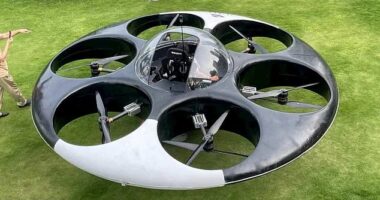A NASA astronaut has revealed the one book he thinks most accurately describes aliens.
Astronaut Stan Love has exclusively discussed aliens with The U.S. Sun and explained why he thinks we haven’t found them yet.
He told The U.S. Sun: “There is one science fiction novel, that I think gets this right, which is Solaris by Stanisław Lem and I think that handles extraterrestrial intelligence better than any other science fiction work I’ve seen.
“It’s absolutely incomprehensible to people and people are incomprehensible to it.
He added: “Read it. Don’t see the movies. The movies are about people, they’re not about the aliens, the book is about the aliens.”
Love is a 57-year-old American scientist and astronaut who joined Nasa in 1998 and went on his first spaceflight on Space Shuttle Atlantis in 2008.


He’s logged over 300 hours in space but hasn’t seen any signs of intelligent life around Earth yet.
Despite Nasa now officially investigating unexplained UFO sightings, Love doesn’t believe intelligent aliens life has come to visit our planet.
He thinks the events described in the 1961 science fiction novel Solaris describe aliens better than any other current theory.
He said: “That’s the closest theory I’d agree with so far.
Most read in Tech
“We can’t even understand each other sometimes and we’re the same species.
“Then when you get to different species on Earth that are also intelligent, there’s this huge barrier and then if you get to aliens with no connection with us whatsoever, it would be hard for us to recognize that they are intelligent.”
The plot of Solaris follows a team of scientists trying to understand alien intelligence.
The alien in question is a vast sentient ocean on a planet called Solaris.
The scientists end up learning nothing about the ocean but a great deal about themselves.










